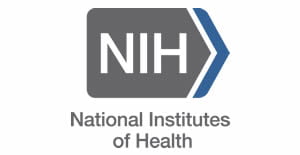RSS feed source: National Institute of Health
Protecting Human Genomic Data when Developing Generative Artificial Intelligence Tools and Applications
Artificial intelligence (AI) tools and applications are proving to be transformative for driving new biomedical research advances. While development and use of generative AI is becoming increasingly prevalent, NIH urges the research community to remain vigilant of potential risks of inadvertent data disclosure when sharing AI tools and applications. Specifically, NIH reminds researchers that:
The Genomic Data Sharing (GDS) Policy and the subsequent Data Use Certification (DUC) Agreement prohibit users from distributing controlled-access data (including genomic or associated data) or their Data Derivatives to any entity or individual not identified in their Data Access Request without appropriate written approvals from the NIH. Sharing, retaining, or training generative AI models using controlled-access human genomic data may risk disclosing controlled-access data and, thus, violates the Non-Transferability provision of
Click this link to continue reading the article on the source website.
RSS feed source: National Institute of Health
Rescission of the Final Scientific Integrity Policy of the National Institutes of Health
The purpose of this Notice is to rescind the Final Scientific Integrity Policy of the National Institutes of Health (NIH), issued under NOT-OD-24-178, to ensure alignment with the Administrations priorities. The NIH remains committed to upholding the principles of scientific integrity and has multiple interlocking policies that support and promote scientific integrity across the agency, including policies on research misconduct, authorship, human and animal subject protections, and data management and sharing, which will continue. This Notice only applies to the Final Scientific Integrity Policy of the NIH and not to any policies cited therein. Additionally, the NIH will adhere to the HHS Scientific Integrity Policy to advance scientific integrity goals.
Click this link to continue reading the article on the source website.
RSS feed source: National Institute of Health
Implementation Update: Delayed Effective Date for the NIH Intramural Research Program Access Planning Policy
On January 10, 2025, NIH issued the Intramural Research Program (IRP) Access Planning Policy (NOT-OD-25-062) requiring organizations applying to NIH for certain commercial patent licenses to submit access plans to NIH outlining steps they intend to take to promote patient access to those licensed products. The IRP Access Planning Policy applies to license applications and licenses granted by the NIH IRP for patents wholly owned by the government.
The NIH is committed to working with organizations to ensure successful implementation of this Policy. As such, NIH is delaying the effective date to accommodate further stakeholder outreach discussion in developing meaningful access approaches and incentive for partnerships. The Policy will now apply to license applications submitted to NIH on or after October 1, 2025.
Click this link to continue reading the article on the source website.
RSS feed source: National Institute of Health
A team of researchers has developed a groundbreaking high-temperature copper alloy with exceptional thermal stability and mechanical strength. The research team’s findings on the new copper alloy introduce a novel bulk Cu-3Ta-0.5Li nanocrystalline alloy that exhibits remarkable resistance to coarsening and creep deformation, even at temperatures near its melting point.
Click this link to continue reading the article on the source website.
